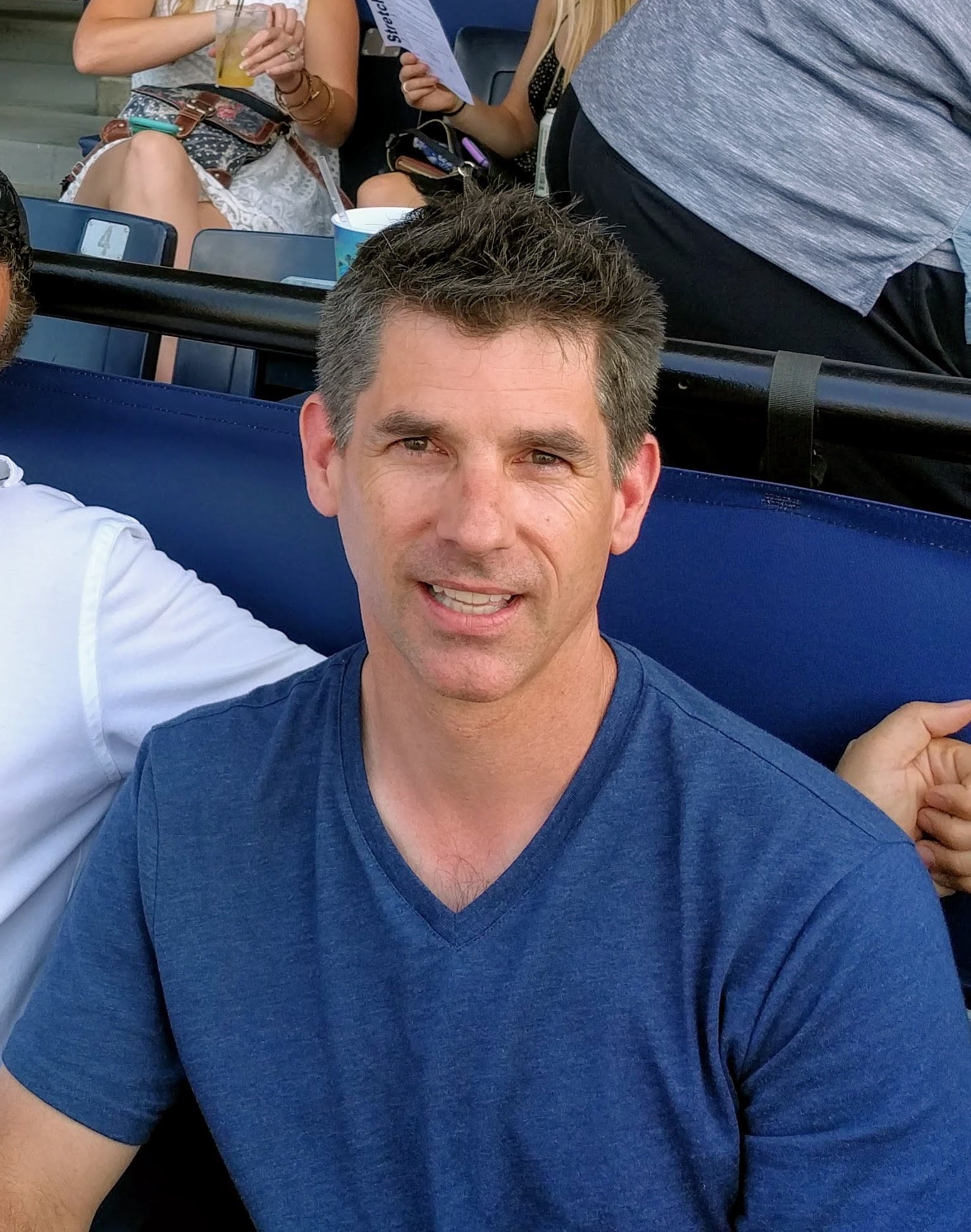We are happy to bring dramatic works, long a part of Classical Pursuits, to our online seminars. English teacher, improv actor and longtime Classical Pursuits leader Hunter Dunn is pairing two giants of 20th-century theatre, Samuel Beckett’s Waiting for Godot and Endgame. These plays, so stripped-down in setting and plot, offer rich opportunities to examine our conventions and assumptions about language and meaning.
 Melanie Blake: Tell us more about yourself and what you do.
Melanie Blake: Tell us more about yourself and what you do.
Hunter Dunn: I live in Detroit and teach high school English. Two of my big interests outside of the classroom are music and improvisational theater. I like to sing, write songs, and play guitar. Before the pandemic, I was performing and teaching improv regularly. I’ve been a member of one troupe for several years that performs musical improv. It’s a perfect combination of my two interests. Years ago I ran lights for an improvised Shakespeare show, and I would love to create an improvised show like this someday.
MB: What draws you to the plays of Beckett?
HD: One reason has to do with a chain of events that began a few years ago at the Detroit Improv Festival. Several Toronto performers captivated me with their unique style of clown improvisation, and I started to explore it in my own training and performances. I also went to Toronto to attend an intensive workshop by these performers and started to read about clowning and experimental theater. I kept coming across references to Beckett, and this drew me back to look more closely at these plays.
MB: I don’t think a spoiler to say that Beckett’s works can seem, at first glance, to be bleak (which is not to say they are despairing). In Endgame, for instance, the characters live in the aftermath of an unspecified disaster. Hamm cannot stand. His servant Clov cannot sit. And Hamm’s parents live in dustbins. At one point Clov asks, “What is there to keep us here?” Hamm replies, “The dialogue.” What do you make of this exchange?
HD: Wow. What an excerpt! One theme in both of these plays is the nature, purpose, and use of language. Glancing through the dialogue of Endgame, we might find Hamm’s response funny, since much of it seems quotidian or even nonsensical. It makes me want to explore the disconnect between everyday notions of the value of dialogue and why it apparently matters to Hamm. Perhaps I can safely say that the exploration of this idea and related questions is not so bleak at all, but fun!
MB: What do you hope participants will get from the experience of reading these plays together?
HD: These two plays have intriguing similarities on several levels, one of which is the difficulty of understanding them. Seminar discussion is especially useful for difficult works like these. More specifically, because there is some overlap in theme, action, and relationship, considering these two plays together should open up new insights about each and, I hope, will also lead us to make greater sense of both.
MB: Thank you, Hunter. We are looking forward to your seminar.
Whether you’re new to Beckett, last read these plays in college, love theatre of the absurd or think everyday life in 2021 is absurd enough, this seminar is for you! The seminar starts February 7. Register here, and feel free to contact us with any questions.


